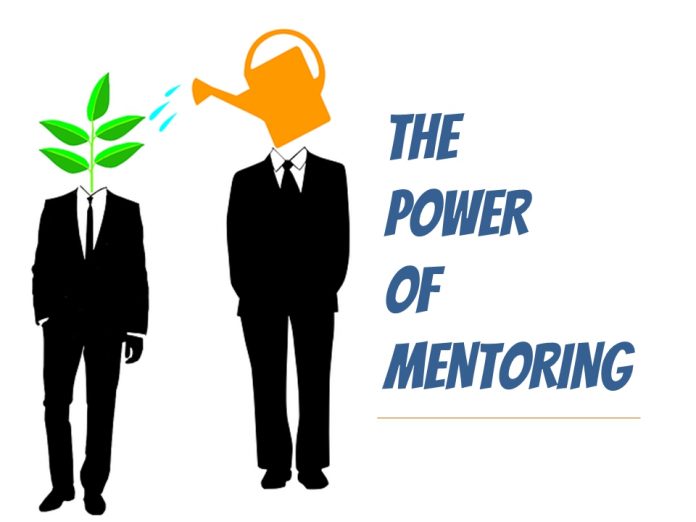Every champion in this world needs a coach to surpass their own self; a coach saves time, economises resources and tailors advice to suit the coachee.
“What would someone else know beyond what I already do?” is a question that all of us have asked ourselves at some point or the other.
“Well, I know what needs to be done; it’s just that I am not getting the time to do it. I don’t seem to get around to doing it. That’s all.” This is commonly heard.
“I know it’s not about doing but my attitude. I know exactly what my problems are and I know how to fix them. What can someone else possibly tell me about me?”
Have you heard or made statements, such as these?
Such thoughts come in the way of appreciating how a coach or mentor can help; they breed skepticism.
Then there are those who won’t take on a coach because they are unaware of the power of a coach or mentor to transform the body, mind and soul.
Here are two insights I have gleaned from my own stumbling and walking and finding of the light.
1. “No man is an island…”, says R.L. Stevenson.
“All life is relationship”, says J. Krishnamurti. All of us come to a point where we cannot achieve a breakthrough all on our own.
No individual is perfect or complete unto himself. One person cannot be good at everything. Everyone has their own strengths. Everyone has areas within themselves that call for work. The ego deludes us into believing that I, the individual ‘I’, can have all the answers independently though it—the same I— does notice that it is an interdependent world.
2. We are aware that the development of a particular dimension of our selves can propel us to a new, elevated and more abundant space in our lives, in terms of health, finances, emotional fulfilment and relationships. What do we do, when such realisations dawn?
How does one go about walking the steps that lead to growth, learning, and expansion of our ability to play a more important role in our own life and that of others?
Reading? Yes. Attending transformational seminars? Indeed. Watching educational videos? Yes, again!
But is this enough?
When your daily routine bogs you down, the intent to learn that new thing or grow in that particular dimension is not doubted; neither is your ability to do it questionable.
But it may still not happen.
More than getting into a discussion about why, I think it’s more worthwhile to talk about what I think can help a mentor.
For the believer, curious, neutral and skeptical, here is why I think it works.
Practical aspect
1. When you get into a mentoring relationship, you are committing yourself to a priority, which you have.
You believe it is important for you, yet it may not occupy the top shelf in your mind space. Therefore, often it may be ignored or put back, to be retrieved later. However, working on it is a long-term process. If you don’t begin that work now, chances are when you need that skill, or attitude shift, you will end up firefighting or be left with a sense of loss.
So, beginning the process of mentoring means recognising the priority and committing to it.
2. A mentor–mentee setup helps you with your time scheduling, towards making growth a priority.
It’s not just your time any more to work on your personal priority. It is in that sense not a leadership task or family task of ‘responsibility’. Yet, it’s not your time alone anymore. The mentor and his time schedule as well as commitment can help to put your own time scheduling to the priority in place.
Psychological aspect
The mentor to mentee interaction can be from the space of ‘nurturing parent to child’. This gives impetus to expand, grow and discover. It is not your own critical parent demanding you to deliver, do this or the other, berating you, not being appreciative of whatever you HAVE done.
Collaborating with a mentor can make a huge difference, if the mentor comes from a space of ‘nurturing parent’. It gives you the comfort that you are held—you can experiment, make mistakes, even become slack, but you are not judged or beaten. Instead, the mentor believes in the best in you, continues to renew your faith in yourself simply by being there with you. That they hold expertise and can enhance your mastery on the chosen priority is added to this.
There is another interesting aspect I must add to this before I finish—that of meeting mentors on the journey of life, in many different ways. Have you ever experienced meeting someone and getting a thought or perspective from them, which helps you tremendously in the moment and stays with you long after? Has anyone ever come back to you after a period of time and told you, how the conversation you had with them helped them a lot at that time and they still remember?
Unexpectedly, we meet, run into people; sometimes complete strangers, who act as mentors for us in that moment. The element of mentor–mentee relationships runs like a subtle theme through human life. Events like these are serendipitous. Often, we need to tempt good fortune by actively looking for a coach or mentor and engaging with them—if we don’t have the luxury of waiting. Once we meet such a teacher, it is a good idea to check within ourselves—am I open to receiving? Not just this, but also—am I open to giving!? If you have an authentic conversation with yourself on these two points, the answers may surprise you! The desire to not give— whether it is dakshina (fee/investment), respect for the process, time, or honesty— is often the reason why many of us don’t receive! Any relationship involves both receiving and giving. This relationship is no different.
These are my thoughts on how you can add more to yourself, in the time available to you, given the same commitments you have—by taking on a mentor in your area of priority and giving it a shot. You may not get it right the very first time, but then you have to begin somewhere! You cannot expect to overhaul your life in one go!
(The author is an OD consultant.)
Value our content... contribute towards our growth. Even a small contribution a month would be of great help for us.
Since eight years, we have been serving the industry through daily news and stories. Our content is free for all and we plan to keep it that way.
Support HRKatha. Pay Here (All it takes is a minute)




































